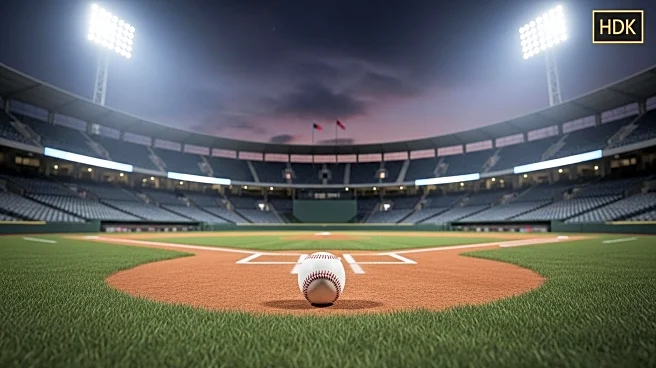What's Happening?
Major League Baseball (MLB) is facing a potential labor dispute as discussions around implementing a salary cap intensify. The current collective bargaining agreement expires on December 1, 2026, and owners are considering pushing for a salary cap, a move strongly opposed by the MLB Players Association (MLBPA). The debate centers on the financial disparities between teams, with high-spending franchises like the Los Angeles Dodgers and New York Mets significantly outspending smaller market teams. The MLBPA views the salary cap as detrimental to player earnings and is preparing to resist any such proposals.
Why It's Important?
The outcome of these negotiations could have significant implications for the future of MLB. A salary cap could potentially level the playing field by reducing financial disparities between teams, but it may also limit player salaries and alter the dynamics of team building. The MLBPA's resistance to a cap underscores the tension between maintaining competitive balance and preserving player earnings. The resolution of this issue will likely impact the league's economic structure and could influence labor relations in other professional sports leagues.
What's Next?
As the expiration of the current agreement approaches, both MLB and the MLBPA will need to engage in negotiations to address these contentious issues. The possibility of a lockout looms if an agreement cannot be reached. Stakeholders, including team owners, players, and fans, will be closely watching the developments, as the outcome could affect the 2027 season and beyond. The league's ability to navigate these challenges will be crucial in maintaining its popularity and financial stability.









